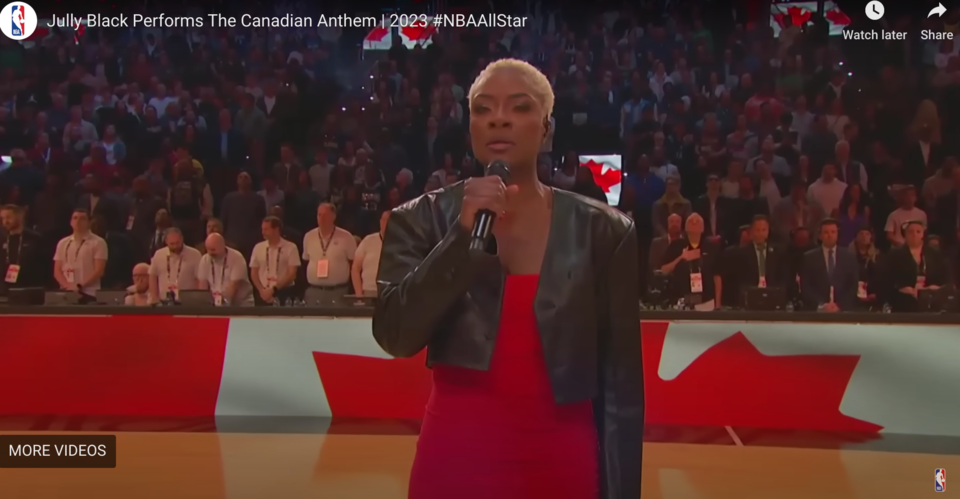Shé:kon sewakwé:kon, greetings all. It’s been a strange month. Big fluctuations in our weather. I’ve had relationships both personal and professional challenged in significant ways. I’m ready to leave February 2023 behind.
Black History Month is about to wrap up, so I wanted to write a reflection piece on the performance that has the internet abuzz. Jully Black singing O’Canada at the NBA All-Stars game last week has been met with some strong opinions. I have some as well.
Most would be aware of the performance I’m referencing but for those who are not, Jully Black made an edit to Canada’s national anthem. She sang “our home ON native land” rather than as it was written, “our home and native land”.
As a Kanienkeha:ka woman this is a version I’m familiar with. This adaptation is playing in my head when present for Canada’s anthem. I think you’d find many, if not most Indigenous people would say the same.
Interestingly, recently I was challenged professionally. A flagrant and unilateral attempt by a white team member to change the messaging and intent of an Indigenous voice – my voice - related to content specific to the Indigenous experience.
I felt disrespected and hurt that my narrative had been tampered with.
A stark contrast to the message shifting of Jully Black’s recent National Anthem performance. A subtle alteration that reverberated through online posts, comment sections, and in our communities.
Among non-indigenous people there were both support and opposition. Some suggested this should be a permanent change, others were offended and called for the boycott of Black’s future performances.
I wondered why those in opposition took such a strong position on this. Does it challenge their narrative? Hasn’t it already been challenged post findings and recommendations of the Truth and Reconciliation Commission? Post detection of thousands of unmarked graves at Indian Residential School sites? Have they noticed that land acknowledgements have become mainstream practice?
People now understand that most Canadians weren’t taught the truth about the Indigenous experience and the history of the relationship between our nations and the Crown.
The narrative and story of Canada needs to be shifted to represent truth. And as Jully stated, she “sang the facts.”
My cultural teachings encourage the sharing of lands and resources. Treaties are meant to be honoured. Our interconnection to all life places us all as equals. But so often we, Indigenous people, find ourselves erased from the fabric of Canadian culture. Outside of images of our regalia, dances, drumming, and our art we’re rarely invited to participate in world stage events as representative of these lands. We are seen but not heard.
Permanent lyric change or not, the conversation is on fire, and I don’t mind helping to stoke it. It’s a discussion worth the attention.
Jully Black will be here in Collingwood as a featured artist for the town’s International Women’s Day event. I will also be in attendance and sharing a poem. I look forward to thanking her in person for standing firm in her messaging. Bravo, Jully!
Skén:nen, Peace.
Jillian Morris is Kanien’kehá:ka, turtle clan and band member of Six Nations of the Grand River Territory now living in Collingwood. She shares stories and experience passed down through the oral traditions of Kanien’kehá:ka culture in her regular column, entitled Ka’nikonhrí:io, (The Good Mind) published on CollingwoodToday.ca.
